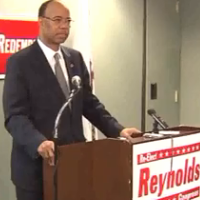 Another ten months, another failed Italian prime minister. The next prime minister is expected to be the Mayor of Florence, Matteo Renzi of the ruling Democrat Party, who has been summoned to the presidential palace to see about trying to cobble together a new governing majority coalition and cabinet.
Another ten months, another failed Italian prime minister. The next prime minister is expected to be the Mayor of Florence, Matteo Renzi of the ruling Democrat Party, who has been summoned to the presidential palace to see about trying to cobble together a new governing majority coalition and cabinet.
Because, as you may have realized from the above, he’s not actually a member of parliament, he will presumably be proclaimed a “Senator-for-Life,” the appointed position granted to Mario Monti at the end of 2011 so he could become Prime Minister. Under the constitution, the President can appoint anyone to the Senate and then invite them to form a cabinet as prime minister. It’s more or less undemocratic, but it’s constitutional.
Monti, a former career EU official at the time with no elected experience, proceeded to select a cabinet composed entirely of other non-elected “technocrats” (apolitical experts), so he could enact austerity measures. He was succeeded by the now-outgoing Enrico Letta, just last year, after losing an election. Letta wasn’t exactly elected either by the country, but he was at least an elected member of parliament who managed to form a majority from within his fellow members across the three largest parties.
He was brought down by a no confidence vote Mayor Renzi instigated last week. Both Letta and Renzi are Democratic Party members but Renzi took control of the party leadership in December 2013 and didn’t feel like waiting his turn — or even being elected to parliament first.
Post-World War II Italian politics have been increasingly wracked by instability due to having several major parties in parliament — usually 3 or 4 at a time — often with strong geographic alignments in the second tier parties. This all adds up to no one party usually being able to form a majority and certainly not one that can survive no confidence votes easily.
Read more



 Been a busy month for me so I haven’t had a chance to give the story due diligence, but if you didn’t hear: the German automaker Volkswagen’s U.S. division attempted to unionize their own workers in Tennessee.
Been a busy month for me so I haven’t had a chance to give the story due diligence, but if you didn’t hear: the German automaker Volkswagen’s U.S. division attempted to unionize their own workers in Tennessee. Typically, the only countries that try to tell the United States what to do are in the company of North Korea and Venezuela.
Typically, the only countries that try to tell the United States what to do are in the company of North Korea and Venezuela.  Latest Episode:
Latest Episode: A balanced universe: Zimbabwe’s government has
A balanced universe: Zimbabwe’s government has  According to
According to  Another ten months, another failed Italian prime minister. The next prime minister is
Another ten months, another failed Italian prime minister. The next prime minister is 


